Littering is a problem that’s fairly common in our world and in fact has been a growing issue for decades. This type of behavior wasn’t an issue until around the 1950s when manufacturing began its comeback after the second world war.
In turn, this meant that there was a huge increase in the production and use of disposable goods. And with that came an ever-growing mountain of waste!
Before this, litter especially plastic waste was virtually unheard of. However now, in more modern days, intentional littering behavior is more of an issue because of the mass production of disposable waste.
But what is littered? People litter many things including, cigarette butts, plastic bags, plastic bottles, and hazardous waste, and refuse to put them in garbage bins.
So, let’s take a deeper look into littering and what the consequences could be for us as well as our environment.
REMEMBER: Your actions have implications, and don’t underestimate the consequences on our world!
What Is Littering?
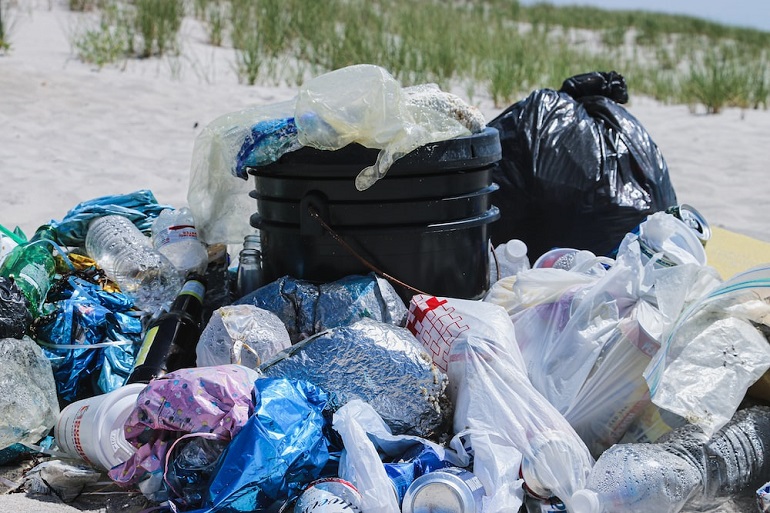
We hear the word “littering” very often but what does it actually mean? The correct definition is the improper disposal of any waste products. Sometimes, it can happen by mistake, but often it can be on purpose.
Littering not only makes the place look untidy, but it can also cause serious problems for wildlife and our world. It can cause air pollution, which countries then have to pay billions to attempt to reverse.
What Are the Most Regularly Littered Items?
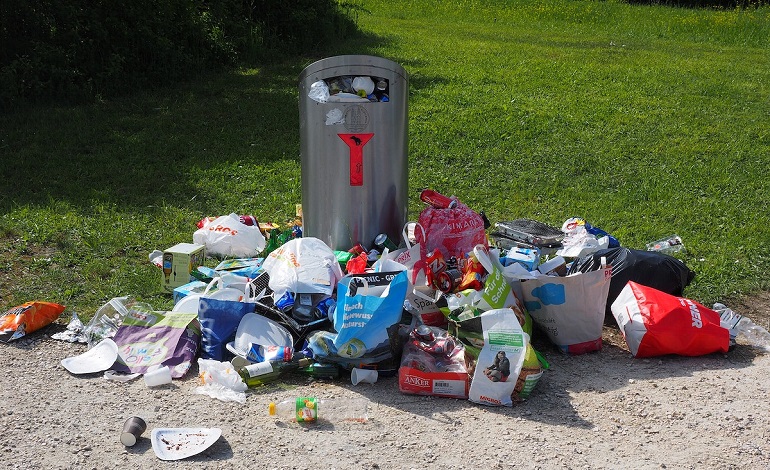
Now that we’re all up to scratch on what littering is, you might be interested to know what items get littered the most. Let’s take a look.
Cigarettes easily take the top spot for the most littered item across the world. This isn’t exactly surprising, given how many cigarettes you see on the ground when you’re out and about.
Food packaging, plastic bottles, and cans are next up on the list. This is the stuff that usually ends up in waterways and oceans.
Alcoholic drink containers are another very common type of litter. Whether this is bottles or cans, it’s very likely that it’s going to end up somewhere it shouldn’t be.
Vehicle parts are also common items to be littered. We’re all used to seeing a tire or two when we least expect it!
The fifth most likely item to be littered is discarded food and drink. Now, this isn’t the worst on the list, as wildlife can use the scraps, but these items can still impact our earth which is why it is best to dispose of them correctly.
Facts about Litter
Just like anything, there are lots of facts about litter and littering. Unfortunately, some of these facts give us a bit of a reality check about how our littering can have a massive effect on our planet.
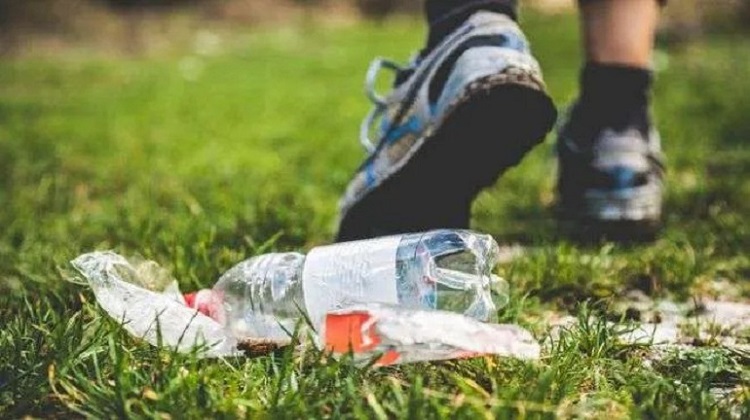
So, what are some of these facts?
- Here, in the United States, it’s estimated that around 6729 pieces of litter are found on every roadway mile.That’s millions per 1000 miles – millions of litter without proper disposal.
- Do you think your mortgage may be expensive? Well every year, local governments spend around $11.5 billion trying to clean up your intentional littering and waste.That’s a lot of money to clean up something that could be prevented fairly easily if we all do our part in our parks and local areas.
- If you have a great deal of litter in your neighborhood, then chances are, your property value could be decreased by 7%.At the end of the day, who wants to buy a house with food wrappers sprawled every 50 feet?
- Plastic litter and waste make up 38.6% of all litter. Imagine how many Starbucks lids that percentage is!
- Around 10 – 12 million metric tons of plastic litter is put into our oceans every year.This leaves marine debris and is hurting things like our local streams, and animals die in our waters because of our litter – turtles included!
Why Do People Litter?
Now, if you are like me, you have no idea why people are intentionally littering, you take your trash home, you instill in your children that our planet is not a dumping ground, and you recycle. But not everyone is like you and me and believe it or not, there are a few reasons why people litter.
Here are some of the main reasons.
Convenience
A simple reason is that they do not have access to a trash can. And rather than do the right thing and take their trash with them, people decide to litter.
Alienation
There is also a psychology to littering that you may not have even crossed your mind before now. But people will litter less when they are in areas that mean something to them. The flip side of this is that it can be seen as a form of rebellion by those who feel as though they are not part of a community.
Lack of Consequences
Unfortunately, the law isn’t that strict when it comes to waste management and so it’s much easier to dump it without any concerns about consequences.
Causes of Littering
When you hear the word littering, you probably think of a group of teenagers with no care in the world throwing trash on the floor. And this may be the case sometimes, but what about all those other causes?
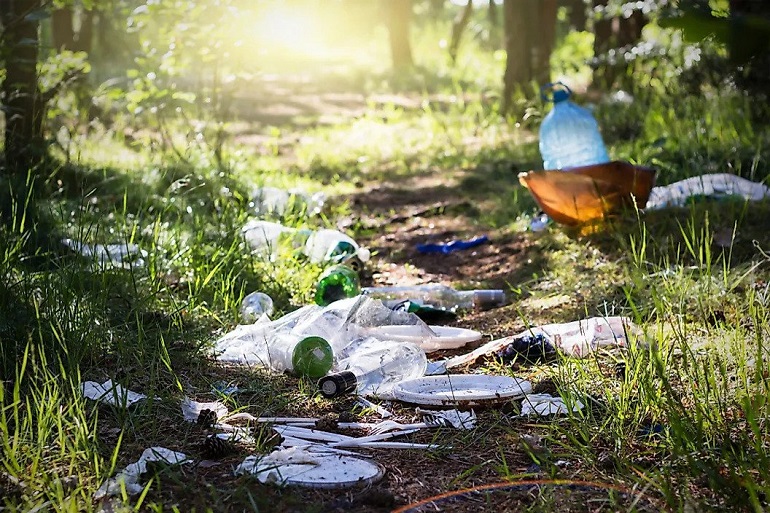
Almost half of the litter we see hasn’t been thrown there to spite everyone else, it’s simply ended up there for a whole host of other reasons. This is called accidental or unintentional littering.
There are a few causes of this unintentional littering, let’s take a look at them.
Trash Cans
When there are trash cans and dumpsters that do not have tight-fitting lids, or even worse, no lid at all, it is easy for the garbage to be thrown around either by bad weather or local wildlife.
Worksites
This can be a big problem when it comes to littering as lots of unintentional littering comes from items falling off delivery trucks. Loading docks are also a huge contributor to littering as packaging is easily blown around.
Motorists/Pedestrians
We have all been driving or walking and have some litter that we need to dispose of, but there are no trash cans available, so what do you do? Well, my advice would be to take it home with you or hold on to it until you find a suitable trash can.
If you decide to litter, then there is a strong possibility that if you are caught, you will be fined up to $2,000 – it’s just not worth it!!
Lack of Resources
This is one of the main causes of littering. A survey has shown the most illegal dumps in Pennsylvania happened in towns that didn’t have municipal trash hauling. Doesn’t that tell you something?
Why Is Littering Bad for the Environment?
It’s almost common sense at this point that littering is bad for the environment but what exactly does it do? How exactly does it affect us?
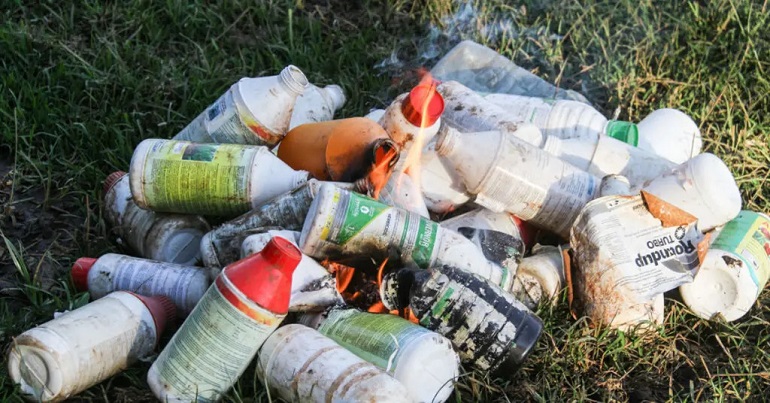
Litter Kills Wildlife
The more littering that happens, the more animals have to suffer. One million animals die every year because of the trash that’s left for them to ingest.
These creatures can’t lower the amount that we litter, and yet they are the ones suffering with marine animals being the biggest victim. Did you know that over 100,000 marine animals die every year thanks to litter making its way into their habitats?
Litter Causes Pollution
One of the main things litter contributes to is pollution. So many harmful chemicals are released when trash begins to break down that can very quickly cause damage to the earth. They can make their way into the water systems as well as the soil which then hurts everyone.
40% of litter is burned where, once again, harmful chemicals can be released that then cause air pollution.
Disease Spread Is Assisted by Litter
Think of how dirty some trash can be when it leaves your house, now imagine that same trash after it’s been sat on the side of a highway for a month.
So many bacteria and diseases are spread through people coming into contact with rubbish because we forget that it is a breeding ground for all of these awful things.
We can pick up these diseases when picking up litter, but it can also happen indirectly. This happens when animals touch the trash and then touch you. Something that you might have never even suspected, taking your dog for a walk and then sniffing around something could cause serious illness for both of you.
Litter Is Costly
We’ve recently started to recognize the litter problem in the world, and because of this, we are trying to get rid of as much as possible.
Litter on the highway can be such a big risk for drivers which is why it needs to be picked up daily. This is certainly not a cheap task with Arkansas spending $5 million in 2021 on litter cleanup.
Keep America Beautiful has said that 11.5 billion is spent every year on litter, this includes all of those costs that we don’t think about like keeping public spaces clean.
Did you know that litter also has a major impact on property values? This is one of the many hidden costs of trash.
How Much Trash Is Littered Every Day?
Littering happens so often that we tend to forget just how bad the problem really is so let’s take a look at some stats to put it into perspective.
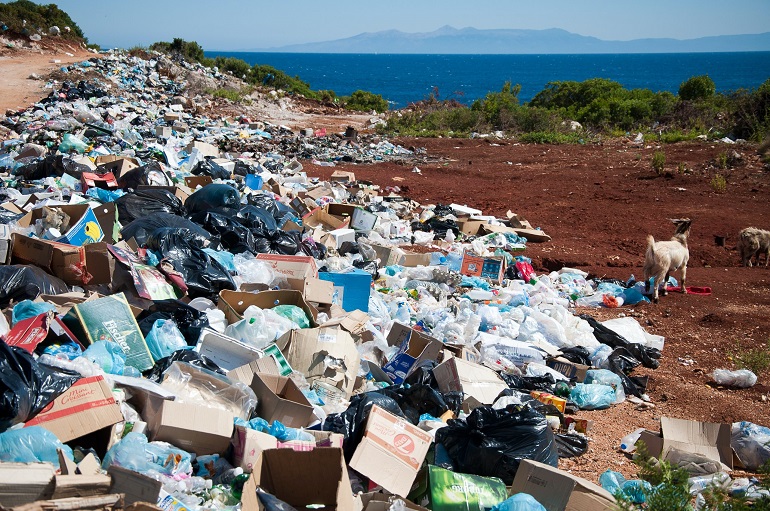
- 4.5 trillion cigarette butts are littered globally every single year
- Cigarettes make up 50% of litter
- Annually, 9 billion tons of litter around the world ends up in the ocean
- 59% of the litter on highways is paper, 16% is cans, 6% bottles, 6% plastic, and 13% is a mix of other things
- 2.12 billion tons of waste gets littered every year
How to Prevent Littering: Solutions & Ideas
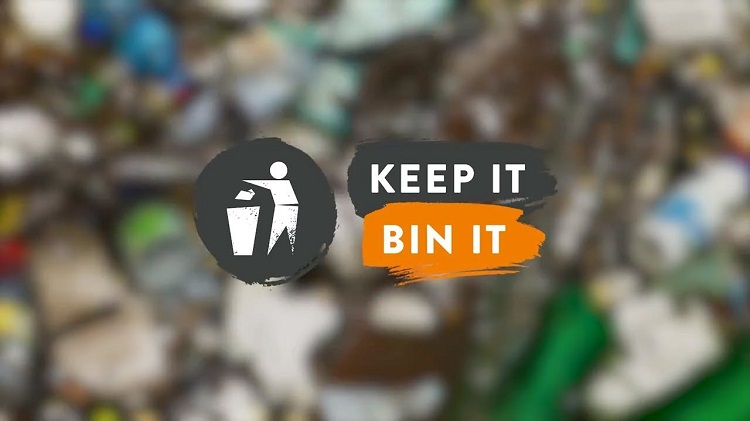
Luckily, there are lots of things you can do to prevent littering and to significantly decrease the amount of litter in public places, and you can have personal involvement in helping this.
Take up Environmental Stewardship
Environmental stewardship is a great way to prevent littering and is a hands-on approach from you in your local community. There are tons you can do as an environmental steward, including cleaning up trash and ensuring those trash can lids are tightly shut, so nothing escapes!
Little things will also make a massive difference like educating yourself and educating others. Composting is also an easy process to set up which can have massive positive effects – don’t underestimate the power of compost!
Container Deposit Legislation
This is a great scheme that is used all over the world to different degrees. The basic idea behind it is to offer money for any items that are recycled in the machines. Unfortunately, not everything can be recycled in these machines. But things like glass, metal, and plastic containers are the most common items.
New York started to include plastic bottles in their container deposit legislation in 2009 and quickly saw a huge jump in recycling rates.
So not only are they helping to hit recycling targets but they are also bringing a cash injection – which let’s be fair every state needs! In fact, in 2010 New York received around $120 million from unclaimed deposits.
Container deposit legislation is a great way to prevent littering as it not only promotes recycling but also reduces roadside littering.
Studies have shown that these types of schemes can reduce roadside littering by as much as 30 -64%. That number is just too huge to ignore, don’t you think?
Impose Stricter Laws and Regulations
Don’t leave trash pick up to those doing community service! You can play a part too!
Stricter laws and regulations mean a minimum fine for leaving trash lying around. But we must ensure that these fines are large enough to make people think seriously before littering.
Many countries such as Singapore, Canada, Germany, and many others have taken a no-nonsense approach to littering. So why haven’t we?
Monitoring Dumping Sites
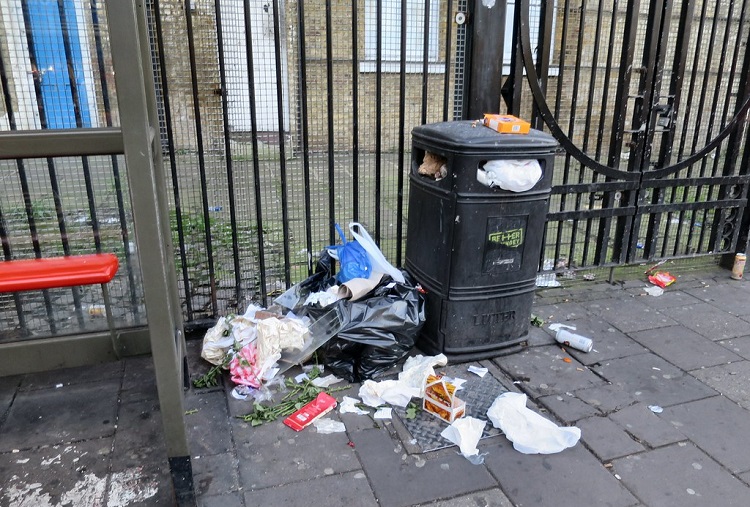
Every city seems to have that one place where no matter what is done there is always rubbish! However, if local authorities were to monitor these areas, it could provide them with answers as to why and how to clear the littering problem once and for all.
There has been a lot of research in recent years looking into specific areas that tend to have more litter and dumping. You don’t need fancy technology to figure this out – a pen and paper will do!
Take a look at where is most susceptible to dumping and littering and have a chat with your local authority to see the next steps. You could do a massive cleanup if you wanted!
Anti-litter Campaigns
When we say “Anti-litter campaign”, we don’t necessarily mean that you have to be all in or as extreme as the likes of Greta Thunberg – really we don’t!
But anti-litter campaigns can bring to the forefront the problems that we do have and ways in which everyday people can actually help. After all, if we are not going to do this for our own communities what hope do we have of protecting the rest of the world?
Recycle, I know I can feel the eyes rolling, but this is nothing we haven’t all heard before. So why are we still having this conversation? In this day and age most things are recyclable so let’s get them in the right bin!
You could use your campaign by showing the effect that people’s trash can have. It has a huge impact on local budgets when they are having to spend millions on clearing litter. Surely there are better things that this money could be spent on like playgrounds, education, and healthcare are just a few I can think of.
Conclusion
Litter has been a problem for many decades, but in recent years its impact on our environment and wildlife has become unrecognizable. But there are things that we can do- from small changes like recycling to bigger things such as anti-littering campaigns. We are all responsible for the well-being of our world!
This is a serious threat to our planet, and with 9 billion tons of trash ending up in the ocean every year, something has to be done about it now, not in 6 months or 2 years’ time when it will simply be too late!
We hope this has been helpful and has opened your eyes to how bad the problem is getting. Now’s your chance to make a difference!












